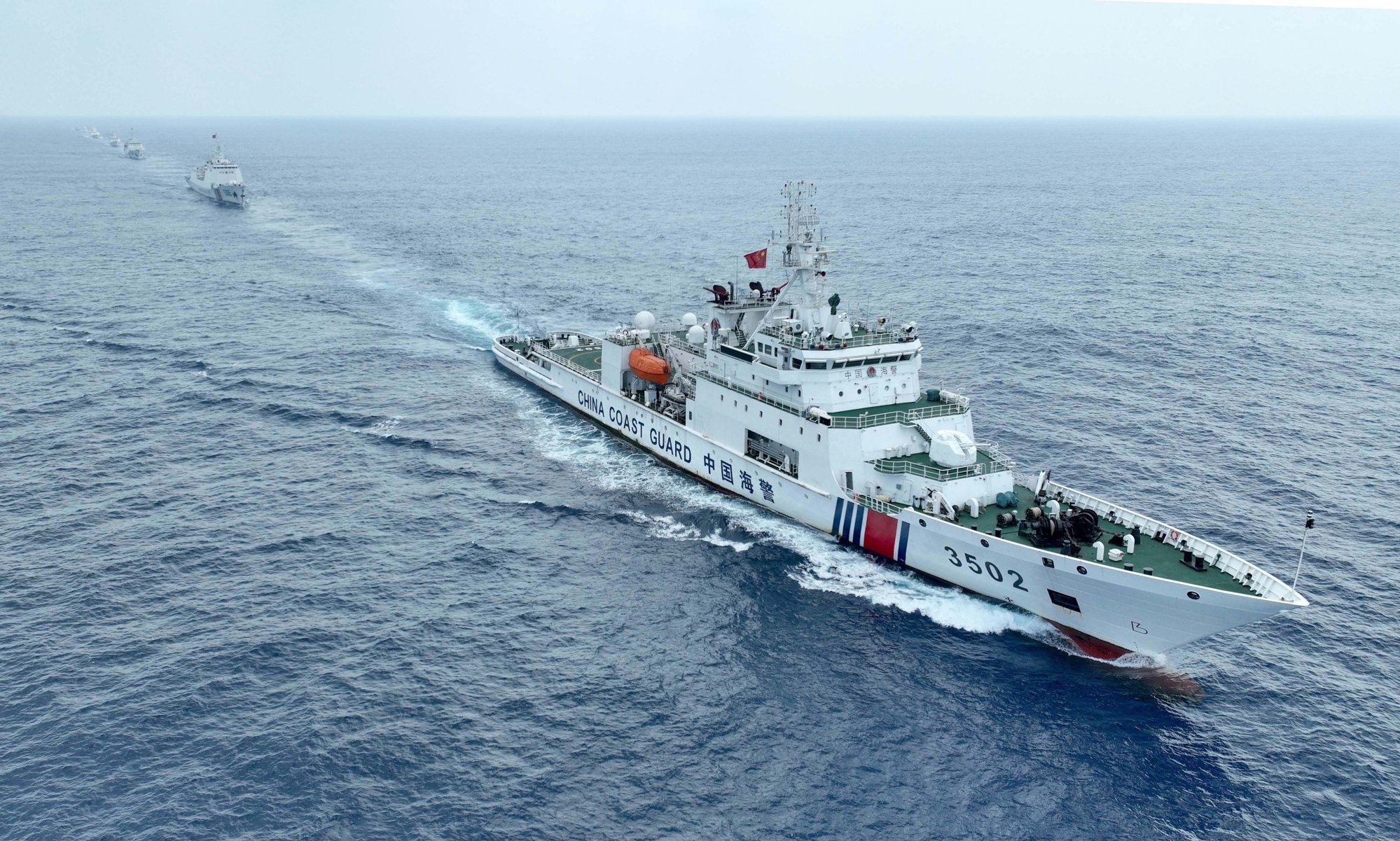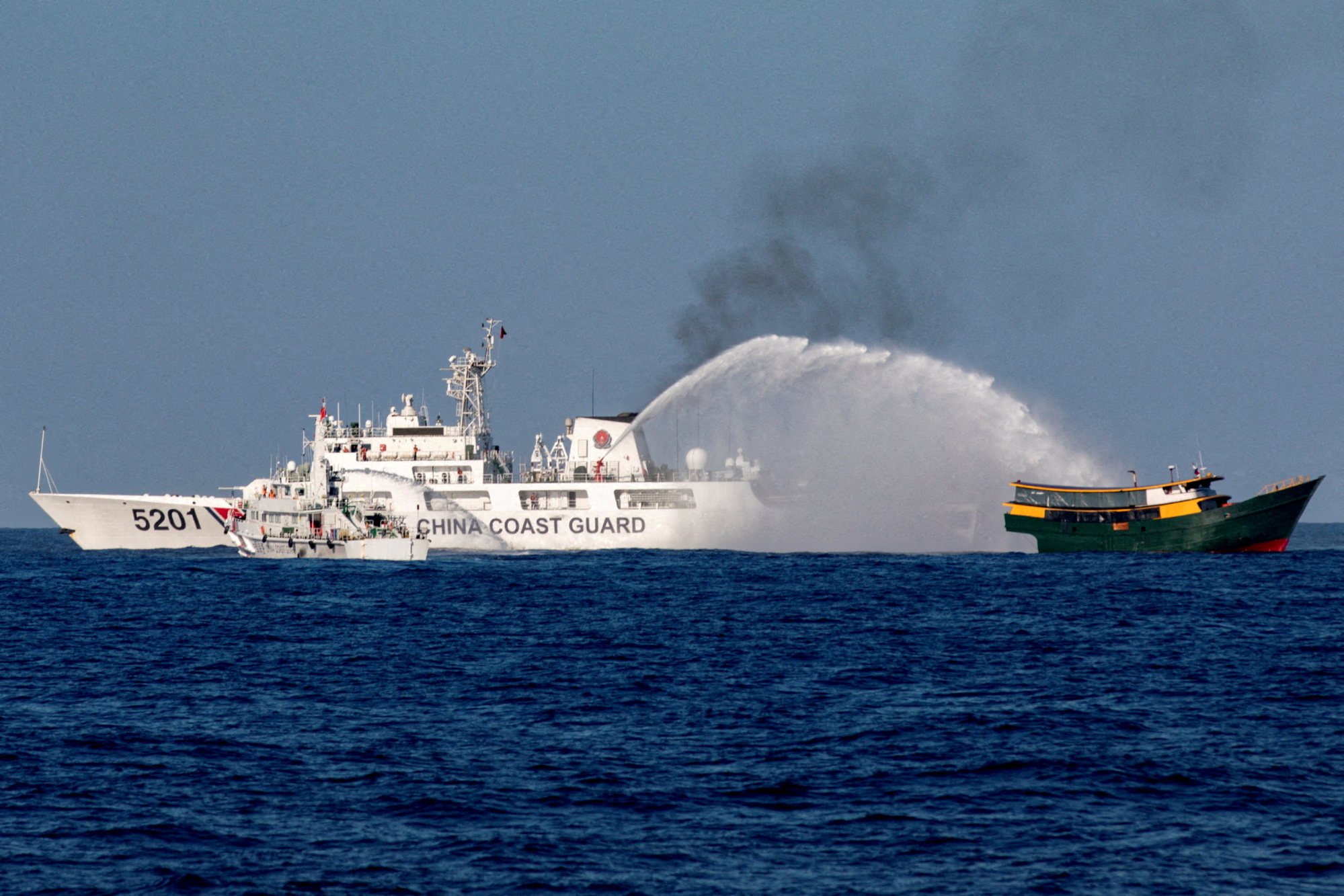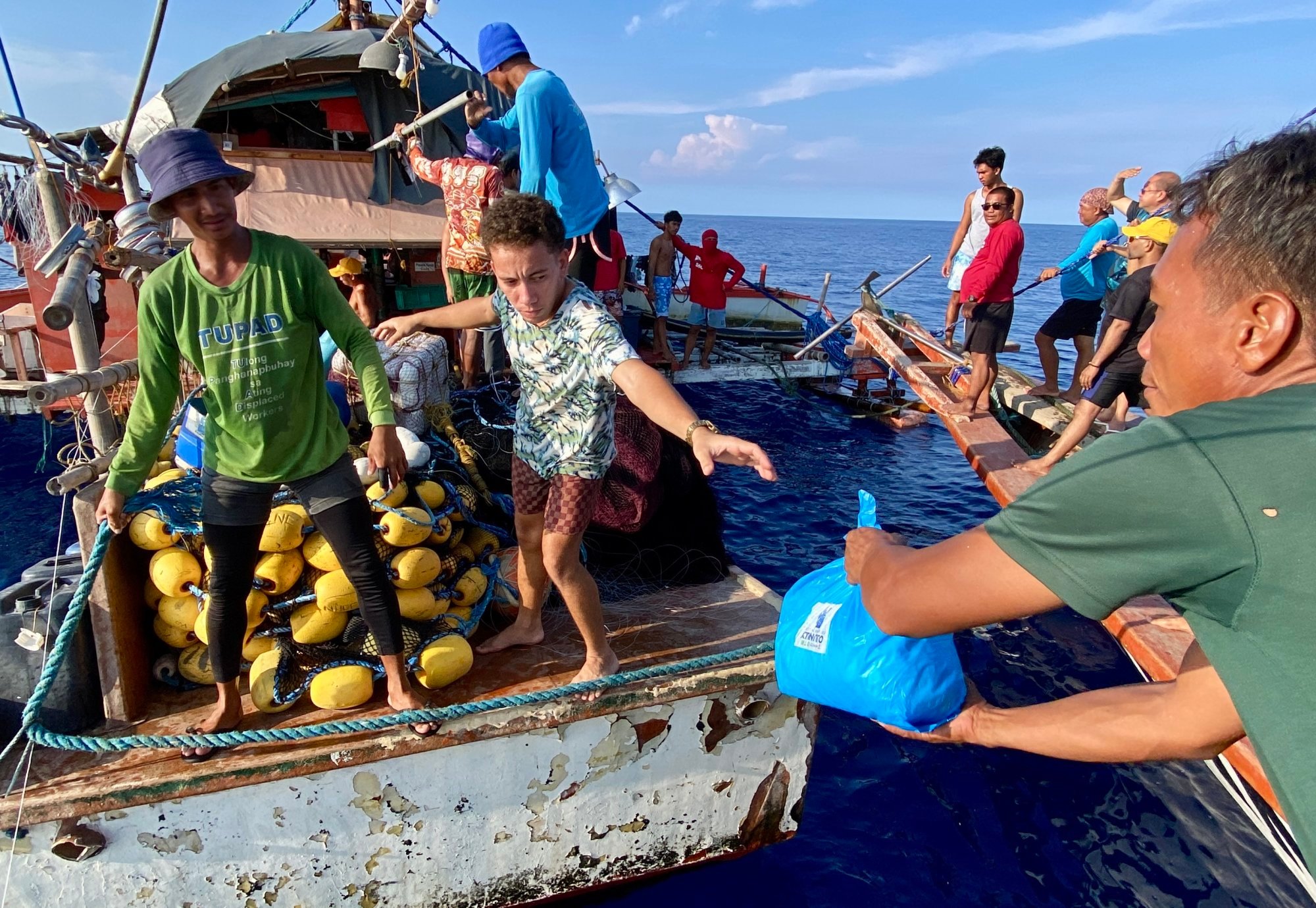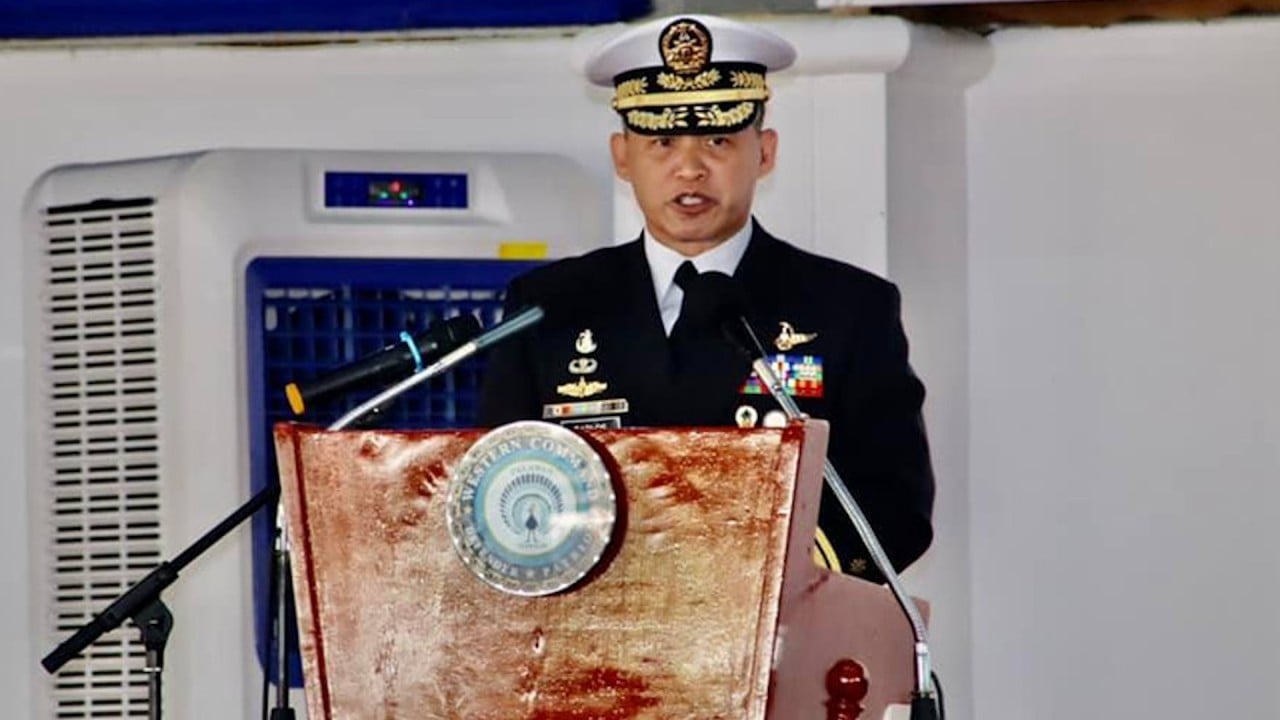“It was sent there as a gatekeeper to help enforce the law soon. It only shows there’s friction between the Philippines and China in the Panatag Shoal … like a Cold War,” Espeña told reporters on Saturday (May 27) during an interview.

When asked about possible scenarios should China proceed with its new policy, Espeña said the Philippines would be forced to resist arrests seen as acts of aggression.
“The Marcos government is urged to strongly communicate this to the Chinese side to dissuade any untoward incidents such as this. As Marcos mentioned in an interview during his working visit to Australia, the regional conflict might be triggered because of miscalculations.
“But it is also telling that Beijing is forcing Manila’s hand into this dangerous scenario by decisively calculating that arrests will make them achieve their objectives overnight,” Espeña told This Week in Asia in a separate interview.
“We can imagine a tit-for-tat scenario from mere arrest to a deadly stand-off into a limited regional conflict as the Philippine security forces seek to rescue Filipino fishers in any case. This will be followed by China’s entry of the People’s Liberation Army Navy vessels to dissuade the Philippines from making further moves. This inevitably would involve the Philippine armed forces entering into a scene,” he added.
In 2012, the Chinese seized Scarborough Shoal, the traditional fishing ground of Filipino fishermen within the 200-nautical-mile exclusive economic zone (EEZ) of the Philippines, after a two-month stand-off with the Philippine Navy.
“If that is so, Beijing will worsen the situation by placing bigger and more sophisticated toys at sea. At that point, Manila is likely consulting its American counterparts that already have a minimum presence via EDCA bases,” said Espeña, referring to the Enhanced Defence Cooperation Agreement, a pact with the United States to hold large-scale joint military exercises on Philippine soil.

“All parts of the country will be put on a high alert, which means bringing in more US forces to strike against Chinese targets. The Chinese will of course upscale its activities but it also risks the US bringing everything to the table,” he added.
In such a scenario, the Philippines must communicate to its allies and other parties its efforts to deter China, Espeña said.
“However, such deterrence rests on credibility, which then rests on capability. The Philippines has little room to manoeuvre except to communicate to its allies that communicating doomsday is a lesser evil than appeasement. Of course, this move must be calculated,” Espeña explained.
Jay Batongbacal, director of the University of the Philippines Institute for Maritime Affairs and Law of the Sea, said China’s threat to arrest and detain Filipino fishermen within the country’s EEZ would be illegal and invalid.
On Sunday , the Department of Foreign Affairs expressed “serious concern” over China’s new policy.
The agency pointed out that every sovereign state had the right to formulate and enact laws, as well as enforce domestic legislation within its jurisdiction but the laws “may not be applied in the territory, maritime zones or jurisdiction of other states, nor violate other sovereign states’ rights and entitlements under international law”.
“The regulations are issued on the basis of the 2021 coastguard law, which also illegally expanded the maritime law enforcement powers of China’s coastguard,” the agency’s statement read.
“China would be in direct violation of international law should it enforce these new regulations in the waters and maritime features within the illegal, null and void, and expansive 10-dash line, which would effectively cover areas of the West Philippine Sea where the Philippines has sovereignty, sovereign rights, and jurisdiction, or in the high seas.”
The agency said China’s legislation must reflect and abide by its commitments and obligations under international law, particularly the 1982 United Nations Convention on the Law of the Sea (Unclos), the binding 2016 Arbitral Award on the South China Sea, and the 2002 Declaration on the Conduct of Parties in the South China Sea.
On Friday, Philippine President Ferdinand Marcos Jnr’s defence chief slammed Beijing’s anti-trespassing policy against Filipino fishermen.
Defence Secretary Gilberto Teodoro Jnr described China’s new rule as “provocative” as it encroached on the West Philippine Sea, disregarding the Philippines’ sovereign rights and those of other claimant countries in the Spratly Islands. The West Philippine Sea is Manila’s name for part of the South China Sea within its exclusive economic zone.

Speaking at the 126th anniversary of the Philippine Navy headquarters in Manila, Teodoro said China’s measure was a provocation and violation of Unclos. “What we do in our exclusive economic zone as to how we defend it can in no way be termed by any sane person as a provocation.”
Unclos refers to the 1982 United Nations Convention on the Law of the Sea, which established Itlos, an independent judicial body. According to its website, the 21-member tribunal is tasked with deciding maritime disputes concerning the interpretation or application of the convention, including “the delimitation of maritime zones”.
Teodoro said: “It is roguish and irresponsible [the] threat to detain, quote and unquote, ‘trespassers’ in what is claimed as internal waters but is actually part of the high seas and part of the West Philippine Sea.”
Commodore Roy Vincent Trinidad, the Navy spokesman for the West Philippine Sea, has also accused China of intrusion in the country’s territorial waters.
Trinidad told reporters: “There will be an appropriate response from the National Task Force on WPS. It’s up to the task force to decide which course of action to take next.”


